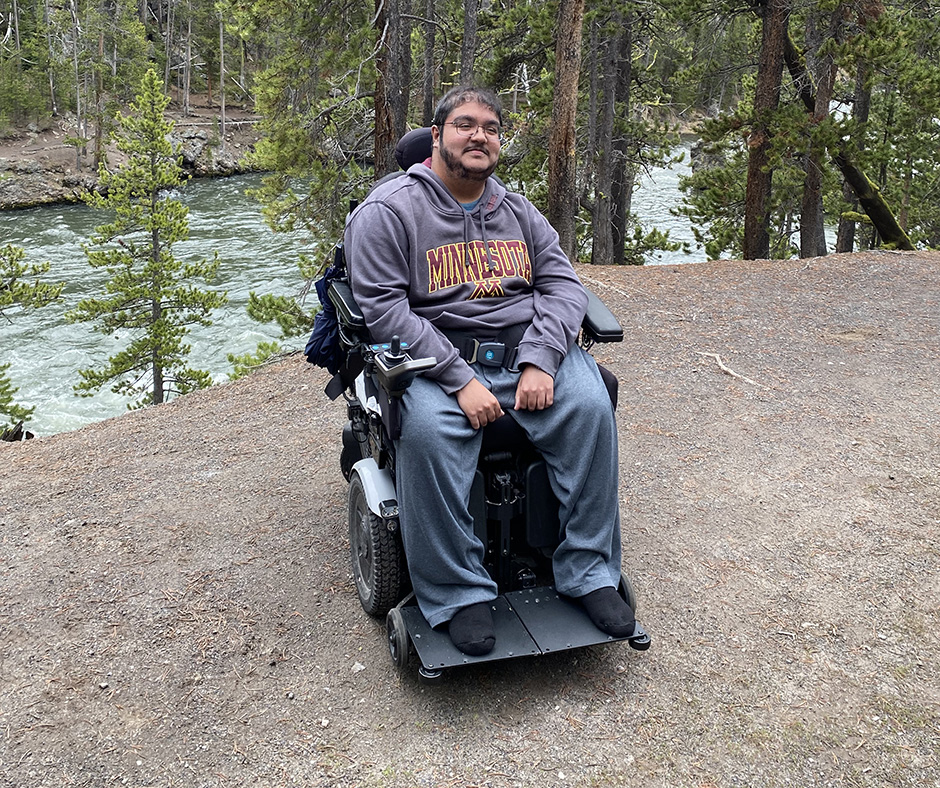 A post for International Day of Persons with Disabilities by Sumukha Terakanambi, Policy Consultant with the Minnesota Council on Disability.
A post for International Day of Persons with Disabilities by Sumukha Terakanambi, Policy Consultant with the Minnesota Council on Disability.
Read Sumukha’s second post in this series: Barriers Beyond Borders: My Experience with Disability Inclusion in India.
People with disabilities make up approximately 16% of the global population—over 1 billion individuals. Unfortunately, they face significant challenges, including lower health outcomes, higher poverty rates, limited access to education, and higher unemployment. The root cause of these inequities lies in persistent barriers that hinder full community participation—barriers related to healthcare, transportation, discrimination, and physical inaccessibility.
The international community observes the International Day of Persons with Disabilities annually on December 3 to raise awareness of these barriers and reaffirm each nation’s responsibility to foster inclusion and uphold disability rights.
We aim to amplify the voices of people with disabilities and highlight tangible actions taken by the global community to promote inclusion.
Global Progress on Disability Inclusion
In 2006, the United Nations adopted the Convention on the Rights of Persons with Disabilities (CRPD), marking a significant milestone in disability rights. The CRPD outlines the obligations of governments to ensure that people with disabilities can live independently, participate fully in their communities, and access essential services. It has been ratified by 191 countries, showing widespread commitment to disability rights.
International organizations like the UN and the World Health Organization (WHO) continue to lead by example. The UN’s Disability Inclusion Strategy, established in 2019, incorporates disability-specific goals, enhances accessibility of its facilities, and employs more individuals with disabilities. The WHO has also developed a set of 40 actions to improve health equity for people with disabilities.
Many countries have taken proactive steps to create a more inclusive society. For example, India enacted the Rights of Persons with Disabilities Act in 2016, and the African Union adopted the African Disability Protocol in 2018, both building on the CRPD’s foundation.
Personal Perspective on Accessibility
Through my own travels, I’ve seen how accessibility initiatives can vary between countries. During a visit to France, Germany, and Austria, I was encouraged by the accessibility of public transportation, such as wheelchair-accessible taxis and restrooms on trains.
Challenges and The Work Ahead
While progress has been made, there are still significant challenges to address to achieve true disability inclusion.
Accessible Air Travel
Air travel remains inaccessible for many. People with disabilities face barriers like inaccessible lavatories, untrained staff, damaged equipment, and a lack of securement systems allowing them to stay in their wheelchairs. These challenges make flying daunting, leading many to avoid air travel entirely.
Enforcing and Enhancing Accessibility Standards
Countries must adequately enforce and exceed accessibility standards. The Americans with Disabilities Act (ADA), for instance, should be seen as a starting point for accessibility, not the end goal. Continuous efforts are needed to improve access beyond minimum requirements.
Universal Disability Benefits
Access to healthcare and disability benefits is critical for participation in community life and finding employment. In many countries, these services are unaffordable or unavailable, limiting opportunities for people with disabilities. Universal disability benefits are essential to ensure equity.
Changing Societal Attitudes
Societal mindsets must evolve to normalize disability. Negative stereotypes and misconceptions often lead to the exclusion of people with disabilities. Public awareness campaigns and inclusive education can help reshape perceptions, ensuring people with disabilities are seen as capable individuals who have much to contribute.
The Role of the United States
The United States set a global precedent with the ADA but has yet to ratify the CRPD. Ratification would demonstrate a renewed commitment to advancing disability rights at an international level, positioning the U.S. as a continued leader in disability inclusion.
Conclusion
The journey to true disability inclusion requires global commitment, leadership, and action. Governments, organizations, and individuals must work together to build a world where everyone—regardless of ability—can participate fully and equally. The work ahead is substantial, but with continued effort, we can create a society where disability inclusion is the norm, not the exception.